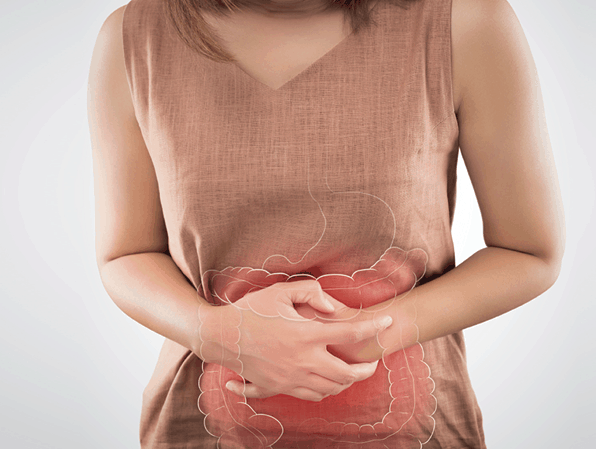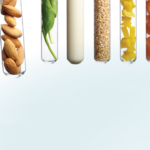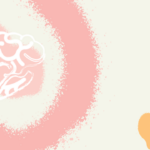THE GUT IS THE FOUNDATION OF HEALTH! Hippocrates knew the importance of gut health thousands of years ago, and now we are just starting to recognize how right he was. Many modern health issues other than gastrointestinal disorders are associated with compromised gut bacteria. Some of these conditions include autoimmune diseases, depression, anxiety, weight problems, cognitive disorders, and heart disease.

In recent years, the gut microbiota has become a significant topic of research, and what scientists have learned has been astounding. The gut bacteria, often viewed as lowly little creatures, are quite sophisticated in their interactions, and can have a profound effect on every area of our health.
The gut microbiome consists of trillions of bacteria, some friendly, others not. The key is balance. Imbalance in gut bacteria that leads to inflammation can be caused by other factors including stress, overuse of antibiotics, high sugar and refined carbohydrate diet, lack of pre- and probiotics, environmental toxins, and certain medications. Gut inflammation causes the protective barrier in the gut to become permeable which is referred to as “leaky gut” or “dysbiosis.” When this occurs, toxic particles can enter the bloodstream, and these foreign invaders will put more stress on the immune system, thus leading to both local and systemic inflammation. This can also affect the brain, lungs, heart, and other areas of the body.
And that is not all… the gut and the brain have a two-way communication system. The gut forms a link between the emotional and cognitive centers of our brain along a two-way communication network linking the brain and the gut through various mechanisms. Alterations in the gut microbiota can have a significant effect on mental health. Research has shown that leaky gut and resulting systemic inflammation can cause depression, anxiety, memory problems, and learning disabilities.
And if I haven’t got your attention yet, as to why you should care about the health of your gut, the gut microbiome can add years to your life. A recent study has shown that microbiota composition is related to healthy aging, and concluded that if you are ridiculously healthy and 90 years old, your gut microbiota is not that different from a healthy 30-year-old! Is the key to healthy aging and longevity in the gut? I believe it is.
COMMON SIGNS AND SYMPTOMS OF A LEAKY GUT
- Gas and bloating/constipation or diarrhea
- Brain fog – feeling spacey
- Fatigue
- Immune problems
- Allergies
- Vaginal discharge or irritation
- Frequent bladder infections
- Sinus problems
- Cravings for sugars and sweets
Don’t be fooled – you don’t always have to have specific gut problems such as bloating or constipation to have gut problems.
REPAIR THE GUT LINING – L-GLUTAMINE TO THE RESCUE!
The surface area of the gut is lined with cells known as enterocytes which regenerate every 2–3 weeks. L-glutamine, an amino acid, is the preferred fuel used by intestinal cells, and in fact, the intestine utilizes about 30% of the body’s total glutamine. In gut physiology, glutamine promotes enterocyte proliferation, regulates a tight gut junction, reduces inflammation, regulates stress responses as well as strengthens the body’s immune system.
Preliminary studies have shown that L-glutamine helps repair the gut lining and reduce intestinal inflammation. Other benefits of L-glutamine include improved immune system, athletic performance, and fat burning. When it comes to mental health, glutamine is a precursor to the neurotransmitter glutamate in your brain. Disrupting the glutamine-glutamate cycle can cause different brain disorders including epilepsy, bipolar disorder, schizophrenia, anxiety, depression, and alcohol addiction. Glutamine can become depleted during times of high stress, inflammation, and stress due to illness or excessive exercise. During stress, the body releases the stress hormone cortisol which lowers glutamine. When used with a healthy diet, L-glutamine, at 5000 mg per day, directly contributes to restoring the health of the intestinal tract. More severe cases may require higher doses.
Good sources of L-glutamine can be found in certain foods, including chicken, fish, cabbage, spinach, lentils, beans, beets, and peas. Limit refined foods, carbohydrates, and sugars. Harmful bacteria thrive on these food choices. Consume foods high in prebiotic fibers which provide a food source for good bacteria. Some prebiotic fibers include: barley, oats, apples (with skin), bananas, and flaxseeds.
Glutamine is your gut superhero! When supplementing with L-glutamine while making healthier dietary decisions, you are inclined to better digestion, improved mental health, and more energy.















